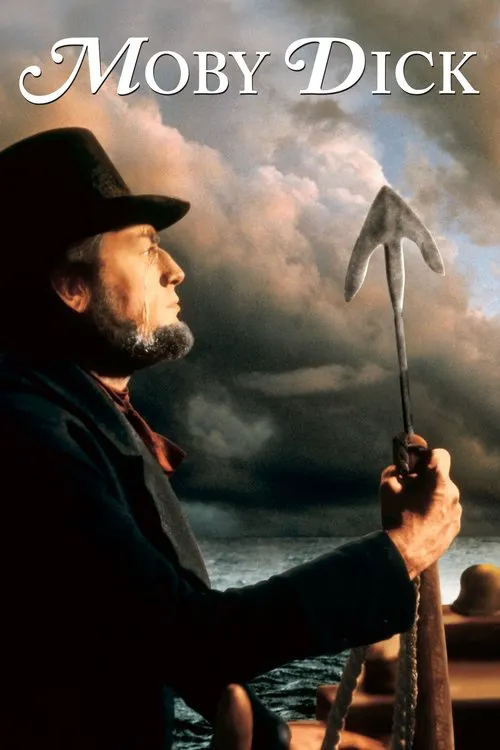Moby Dick

Plot
In the midst of the 19th century, a young and intrepid sailor named Ishmael ventures to the New Bedford harbor, seeking adventure and fortune on the open seas. It is the year 1841, and the whaling industry is at its peak, providing opportunities for those willing to take the risks. Ishmael's quest ultimately leads him to the Pequod, a sturdy whaling vessel commanded by the enigmatic and intense Captain Ahab. Under Ahab's leadership, the crew is tasked with tracking down the elusive Moby Dick, a massive white sperm whale notorious for its size and ferocity. Ahab's obsession with the giant creature is not merely driven by professional interest; his encounter with Moby Dick in the past had a profound and devastating impact. The whale's harpoon had ripped through Ahab's leg, leaving him crippled and vowing to exact vengeance on his tormentor. Ahab's fixation on Moby Dick serves as a central motif throughout the narrative, drawing the crew into his whirlpool of madness. The captain's relentless pursuit pushes the ship and its crew toward the periphery of reason, blurring the lines between the practical demands of whaling and the all-consuming drive for revenge. This singular focus is at odds with the utilitarian purpose of whaling, where the primary objective is to hunt and harvest the valuable blubber for oil. Upon joining the Pequod's crew, Ishmael is introduced to the diverse and colorful assemblage of sailors, each with their own distinct personality and motivations. There's Queequeg, a skilled harpooneer from the South Seas, whose friendship with Ishmael helps him navigate the complexities of life at sea. The two become inseparable companions, sharing quarters and meals, as well as participating in the ship's spiritual and cultural activities. One of the most compelling aspects of Melville's novel lies in its critique of the societal norms and values of the time. The character of Ahab serves as a symbol of the dangers of unchecked ambition and the dehumanizing effects of singular focus. His fixation on Moby Dick becomes an all-consuming force that gradually erodes his relationships with his crew, highlighting the consequences of allowing personal vendettas to dominate one's existence. The novel is also notable for its poetic and philosophical themes, often drawing parallels between the natural world and the human experience. Melville's masterful use of imagery and symbolism helps to convey the awe-inspiring presence of the ocean and its inhabitants, raising fundamental questions about the place of humanity within the larger ecosystem. As the Pequod's crew navigates the vast Pacific, they encounter diverse marine life, including the elusive sperm whale, their ultimate quarry. The crew's experiences are marked by both excitement and danger, as they confront the unforgiving environment of the sea. However, it becomes increasingly apparent that Ahab's relentless pursuit is driven not by a desire for scientific discovery or commercial gain, but by a personal desire for vengeance. Tensions on the ship escalate as the crew becomes aware of Ahab's true intentions. His fixation on Moby Dick starts to undermine the very fabric of the crew's unity, as some begin to question the captain's motives and sanity. As the Pequod draws closer to its quarry, the stakes become increasingly high, and the fate of the crew hangs precariously in the balance. In the end, the confrontation between Ahab and Moby Dick serves as a powerful exploration of the hubris and futility of human endeavor. Ahab's unyielding pursuit is thwarted by the very same force he had sought to destroy, resulting in catastrophic consequences for the crew of the Pequod. The novel's haunting conclusion serves as a meditation on the dangers of unchecked ambition and the limits of human understanding in the face of the vast and unpredictable natural world. Melville's masterpiece stands as a testament to the enduring power of his narrative, which has captivated audiences for centuries. "Moby Dick" remains an electrifying tale of obsession and adventure, drawing readers into the intricate web of human relationships and the unpredictable forces of the natural world.
Reviews
Recommendations




